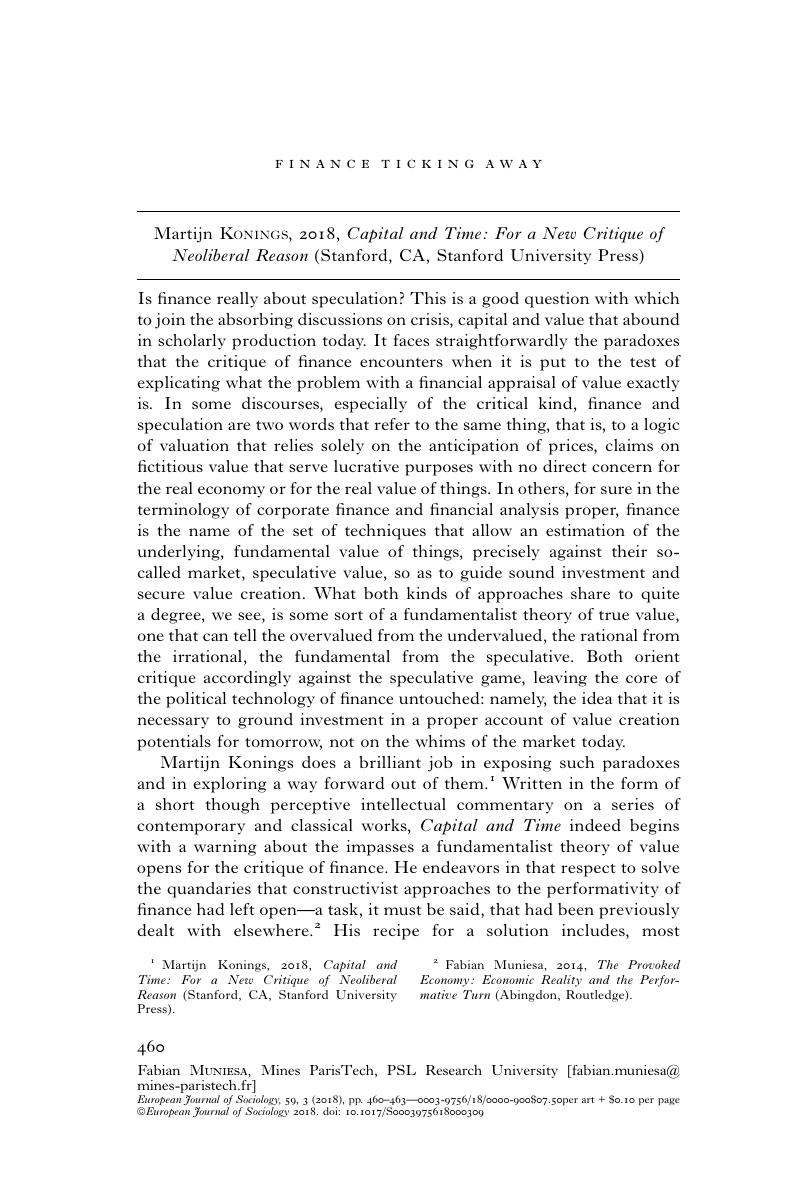Published online by Cambridge University Press: 31 January 2019

1 Martijn Konings, 2018, Capital and Time: For a New Critique of Neoliberal Reason (Stanford, CA, Stanford University Press).
2 Fabian Muniesa, 2014, The Provoked Economy: Economic Reality and the Performative Turn (Abingdon, Routledge).
3 Elena Esposito, 2011, The Future of Futures: The Time of Money in Financing and Society (Cheltenham, Edward Elgar).
4 Liliana Doganova, 2018, “Discounting and the making of the future: on uncertainty in forest management and drug development”, in J. Beckert and R. Bronk, eds, Uncertain Futures: Imaginaries, Narratives, and Calculation in the Economy (Oxford, Oxford University Press: 278-297).
5 Kean Birch, 2017, “Rethinking value in the bio-economy: finance, assetization, and the management of value”, Science, Technology, and Human Values, 42(3): 460-490.
6 Paul Kockelman and Anya Bernstein, 2012, “Semiotic technologies, temporal reckoning, and the portability of meaning. Or: Modern modes of temporality – just how abstract are they?”, Anthropological Theory, 12 (3): 320-348.
7 Horacio Ortiz, 2014, “The limits of financial imagination: free investors, efficient markets, and crisis,” American Anthropologist, 116 (1): 38-50.
8 Éric Alliez, 1996, Capital Times: Tales from the Conquest of Time (Minneapolis, MN, University of Minnesota Press).
9 Nigel Dodd, 2014, The Social Life of Money (Princeton, NJ, Princeton University Press).
10 Martijn Konings, 2015, The Emotional Logic of Capitalism: What Progressives Have Missed (Stanford , CA, Stanford University Press).
11 Perry Mehrling, 2010, The New Lombard Street: How the Fed Became the Dealer of Last Resort, (Princeton, NJ, Princeton University Press).
12 Nicolas Guilhot and Alain Marciano, 2017, “Rational choice as neo-decisionism: decision-making in political science and economics after 1945”, in U. Mäki, A. Walsh and M. Fernández Pinto, eds, Scientific Imperialism: Exploring the Boundaries of Interdisciplinarity (Abingdon, Routledge: 117-139).
13 Michel Feher, 2018, Rated Agency: Investee Politics in a Speculative Age (New York, NY, Zone Books).